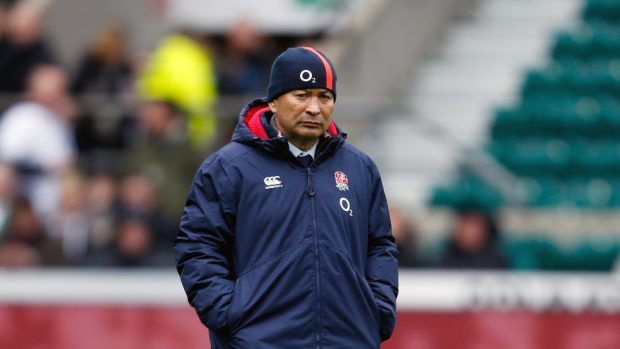Imagine, if you will, a situation where the European football authorities decided to host an international competition which ended with one of the sides having to field their B team in the final, because their clubs had refused to release their best players.
There would be outrage and a right royal stramash between the different governing bodies and the clubs at the centre of the row and the story would be all over the news.
Yet that is exactly what happened in rugby’s Autumn Nations Cup on Sunday where France went in against England with a severely depleted squad – and yet, incredibly, almost beat the reigning Six Nations champions in a dreadful tussle which dispensed with any such frivolous notions as excitement or entertainment value.
As a contest, it had enough high kicks to satisfy the audience at the Moulin Rouge, although the choreography would have had Craig Revell Horwood dishing out zero marks. But the lack of invention, expansiveness or creativity from the majority of the combatants was a reminder of why this sport is a turn-off for so many people.
The young French line-up could be excused for largely sticking to the basics – most of them had never participated in a tussle of this intensity and it was an almost entirely different ensemble from the side which beat Scotland on the previous Sunday.
But England’s performance, in front of a couple of thousand supporters, who predictably belted out Swing Low Sweet Chariot at every opportunity, was one-dimensional, littered with basic errors, and both ponderous and predictable.
Granted, there was drama at the denouement when Luke Cowan-Dickie scored the host’s only try in the last minute to level proceedings at 19-19. And if you are only interested in the result or watching a few minutes of highlights, there were sufficient talking points, whether in Owen Farrell’s unfamiliar string of penalty misses or the merits of introducing a sudden death format to settle the outcome.
But, in the bigger picture, this Autumn Nations Cup has emphasised the sterility and dearth of innovation from most of those involved during the last month.
Wales have gone backwards at a rate of knots since the departure of Warren Gatland, Ireland are nowhere near as good as they were when they defeated the All Blacks three years ago and we should probably draw a veil over the continuing travails of Italy.
As for Scotland, well it seems the more things change, the more they stay the same for Gregor Townsend’s warriors, who lost out to both France and Ireland when it mattered.
There’s no disgrace in falling short against Fabien Galthie’s men who will be favourites for the 2021 Six Nations when they will have all their prime talents at their disposal.
But the same doesn’t apply to the disappointing nature of the Scots’ second-half performance in Dublin, where they were too often clutching at shadows (and straws) and being regularly bewitched and bothered by a wonderful individual showing from the ubiquitous Peter O’Mahony.
Too often, in recent years, the template has been like a broken record. Contentious decisions against the Scots? Check, in the debate over whether Duncan Taylor should have been yellow-carded. An excessive penalty count? Check, and it gradually led to the Scots having to deal with an increasing amount of pressure in their own 22.
Then, once the dust had settled on the 31-16 reverse, were there positive words from Townsend and his troops? Yes, of course there were, there always are.
The captain, Stuart Hogg, who struggled to impose himself on the Irish, even trotted out the hackneyed line about his team being “on the right track to something special”, although the rationale for this Micawberish optimism was pretty thin on the ground.
Even if we accept that they were missing several players, including influential stand-offs Finn Russell and Adam Hastings, France were without 25 key personnel and pushed England all the way into the final moments of sudden death.
Ultimately, Scotland are still stuck between two stools. They don’t have the physicality in their pack to gain superiority over the best opponents in the scrum – as we may discover when they travel to Twickenham for the Calcutta Cup in less than two months.
Yet they also seem unwilling to return to the high-risk, often thrilling but occasionally dangerous style which was obvious in the early days of Townsend’s tenure as coach.
As things stand, they should be capable of winning all three home fixtures against Wales, Ireland and Italy, which is a good launchpad for success. But, if they are to win the championship for the first time since it featured six teams, they will have to do better than resorting to platitudes when they journey to London and Paris.
And please let’s hope the Autumn Nations Cup never needs a second act!
